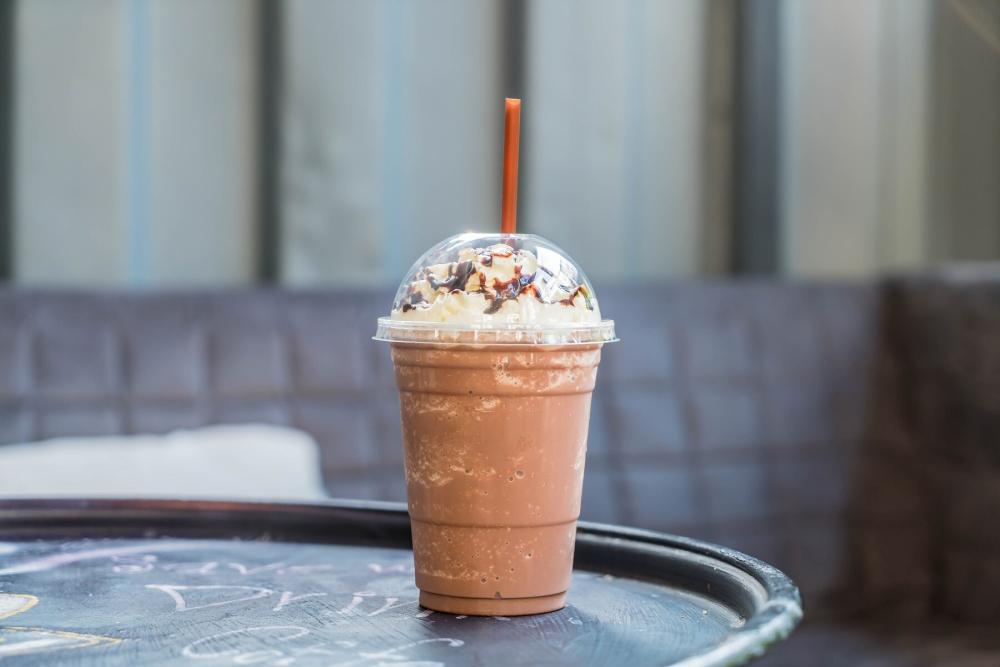With the advent of the month of Ramadan, people's eating habits and daily drinks change, and coffee becomes one of the drinks that need to be rescheduled to suit the hours of breakfast and fasting. With the high temperatures in some countries during the holy month, many people prefer cold coffee as a refreshing alternative to hot coffee, especially after a long day of fasting. But the most important question here is: Is cold coffee an ideal choice during Ramadan? Does it provide the same benefits as hot coffee? Is it suitable for the body during fasting, or does it have some effects that should be paid attention to? In this article, we will discuss the benefits of cold coffee during Ramadan, its effect on the body, and the best times to drink it so that coffee lovers can enjoy it without any side effects. Read on to find out everything you need to know about cold coffee during Ramadan, and whether it can be a healthy option that helps you stay active without affecting hydration or sleep.
What is cold coffee?
Cold brew coffee is a different way of brewing coffee, where ground coffee is steeped in cold or room temperature water for an extended period of 12 to 24 hours instead of brewing it with hot water as in traditional coffee. This method produces a less acidic and less bitter drink, making it a preferred choice for many, especially in hot weather such as Ramadan.
There are two main ways to prepare cold coffee:
- Cold Brew Coffee: Ground coffee is steeped in cold water for a long time, then filtered to obtain a concentrated drink that can be diluted with water or milk as desired.
- Iced Coffee: Coffee is prepared in the usual way with hot water, then cooled by adding ice cubes, which gives it a different taste than cold brewed coffee.
This type of coffee is more refreshing and smoother on the stomach, as it reduces acidity compared to hot coffee, making it an ideal choice in Ramadan for those who want to enjoy coffee without feeling uncomfortable after breakfast.
Is cold coffee an ideal choice during Ramadan?
As eating habits change during Ramadan, many coffee lovers are looking for the best way to enjoy coffee without affecting their fast or hydration. Cold brew coffee is a popular choice, especially in hot weather, but is it the ideal choice during Ramadan? To answer this question, we must look at its benefits and its effect on the body during the period of breaking the fast and fasting.
Benefits of cold coffee in Ramadan
- Less acidic and lighter on the stomach: Cold coffee, especially cold brew, has a lower acidity than hot coffee, making it gentler on the digestive system, especially after long hours of fasting.
- It provides the body with caffeine without feeling dehydrated: Cold coffee contains enough caffeine to give you energy after breakfast, but it is less dehydrating than hot coffee, as the body tends to retain its fluids when drinking cold drinks.
- A refreshing drink after breakfast: In hot weather, cold coffee helps cool the body and provide refreshment after a long day of fasting, unlike hot coffee, which may increase the feeling of heat.
- Flexible brewing option: Cold brew coffee can be prepared in advance and stored in the refrigerator, making it easy to prepare during breakfast hours without having to wait for instant brewing.
When is drinking cold coffee not ideal?
- If taken immediately after breakfast: Drinking cold coffee immediately after breakfast may lead to digestive upset, as it can slow down the absorption of nutrients from food. It is best to wait an hour or two before drinking it.
- If it's loaded with added sugars: Some commercial cold brews are high in sugar, which can cause a rapid spike in blood sugar levels, followed by a sudden drop that can leave you feeling tired. It's best to make it without added sugar or use natural alternatives.
- If you are sensitive to caffeine: Even if cold coffee is less acidic, it still contains caffeine which may cause insomnia if consumed before bed, so it is better to drink it after breakfast or after Tarawih and not before Suhoor.
Is cold coffee an ideal option?
Cold coffee can be an ideal choice during Ramadan if consumed at the right time and in a healthy way. It is best enjoyed an hour or two after Iftar, avoiding adding excessive sugars, to ensure you benefit from its benefits without affecting hydration or sleep. If you are a coffee lover, cold coffee may be the best alternative to hot coffee during Ramadan, especially for those who suffer from acidity problems or want a refreshing drink after fasting.
What is the difference between cold coffee and hot coffee?
Coffee in its various forms is one of the most consumed beverages around the world, but there is a big difference between cold coffee and hot coffee in terms of preparation method, taste, effect on the body, and acidity and caffeine content. Here is a detailed comparison between them:
1. Preparation method
- Hot coffee: Prepared using hot water that quickly extracts the flavors and aromatic oils from ground coffee beans, whether by brewing or direct preparation such as Turkish coffee, espresso, or drip coffee.
- Cold coffee: It is prepared in a different way, where the ground coffee is soaked in cold or room temperature water for a period ranging from 12 to 24 hours, then filtered to obtain a smooth and concentrated drink.
2. Flavor and taste
- Hot coffee: It has a stronger, more intense flavour, with a more bitter and acidic taste due to the rapid extraction of flavours when using hot water.
- Cold brew coffee: Its flavor is smoother and softer, and is often less bitter and acidic, making it a preferred choice for those with stomach sensitivity to hot coffee.
3. Acidity
- Hot coffee: It has a higher acidity, as hot water extracts the organic acids in the coffee more quickly, which may cause digestive problems for some people.
- Cold brew coffee: 60-70% less acidic than hot coffee, making it gentler on the stomach and less likely to cause heartburn.
4. Caffeine content
- Hot coffee: The caffeine content depends on the method of preparation, but in general, regular hot coffee contains a medium amount of caffeine.
- Cold brew coffee: It has a higher caffeine content, especially if it is prepared using the cold brew method, because the coffee is steeped for a longer period, which results in extracting a greater amount of caffeine. However, it can be diluted with water or milk when served.
5. Its effect on the body
- Hot coffee: It helps to stimulate the nervous system quickly, but it may cause a sudden rise in energy followed by a rapid decline, especially if taken on an empty stomach.
- Cold brew coffee: Releases caffeine slowly into the body, giving you longer-lasting energy without sudden spikes in activity levels. It may also help you stay hydrated better than hot coffee.
6. Consumption in different climates
- Hot Coffee: Perfect for winter or times when a person needs a warm drink to boost concentration and energy.
- Cold coffee: More refreshing in hot weather, especially in the summer or during Ramadan after breakfast, as it helps cool you down without causing rapid fluid loss.
The choice between cold and hot coffee depends on personal preferences and health needs. If you are looking for a strong coffee with a rich flavor and a quick effect, hot coffee is the right choice. However, if you want a refreshing drink, low in acidity, and with a long-lasting effect, cold coffee will be an ideal choice, especially during Ramadan or hot weather.
Which is better, cold or hot coffee?
The choice between cold and hot coffee depends on several factors, including personal preference, health benefits, and the effect of coffee on the body. Here is a comparison that shows which is better based on some important criteria:
1. In terms of flavour and taste
- Hot coffee has a strong, sharp flavour, with a pronounced bitterness due to the rapid extraction of oils and aromatic compounds when brewed with hot water.
- Cold brew coffee has a smoother, more delicate taste, with less bitterness and acidity, making it a preferred choice for those who prefer coffee with a mild flavour.
Best: Cold brew if you prefer a less bitter flavor, hot brew if you like a strong, concentrated taste.
2. In terms of acidity and its effect on the stomach
- Hot coffee has a higher acidity, which can irritate the stomach, especially for people with acid reflux or digestive problems.
- Cold brew coffee is 60-70% less acidic, making it gentler on the stomach and easier to digest.
Best for: Cold coffee for people with sensitive stomachs or acidity issues.
3. In terms of caffeine content and its effect on energy
- Hot coffee contains caffeine that is absorbed quickly, giving a quick energy boost but may be followed by a sudden drop in activity.
- Cold brew coffee contains more concentrated caffeine, but it is absorbed more slowly, giving you longer-lasting energy without sharp fluctuations.
Best: Cold coffee for those who want sustained energy, hot coffee for those who need a quick pick-me-up.
4. In terms of its effect on hydration and dryness
- Hot coffee may contribute to fluid loss due to heat and diuretic effect.
- Cold coffee retains water content longer in the body, making it a better choice in hot weather or during Ramadan.
Best for: Cold coffee in hot weather or to stay hydrated, hot coffee in cold weather.
5. In terms of health benefits
- Hot coffee contains more antioxidants because the heat helps extract beneficial compounds such as chlorogenic acids, which promote heart health and reduce inflammation.
- Cold brew coffee doesn't have the same amount of antioxidants, but it's still rich in health benefits and reduces acidity and digestive problems.
Best: Hot coffee for antioxidant content, cold brew for those looking for a gentler drink.
6. In terms of convenience and ease of preparation
- Hot coffee needs to be prepared immediately using hot water, and consumed within a short time.
- Cold brew coffee can be prepared in advance and stored in the refrigerator, making it a practical option for people who don't have time to make coffee every day.
Best for: Cold coffee if you prefer to prepare your drink ahead of time, hot coffee if you prefer instant preparation.
Which is better?
- Choose hot coffee if you're looking for a drink that's rich in flavor and antioxidants, and want a quick boost of energy.
- Choose cold brew coffee if you want a coffee that is less acidic, gives longer-lasting energy, and helps with hydration, especially in hot weather.
Ultimately, there is no one perfect option for everyone, and the decision depends on your lifestyle, health needs, and personal taste.
Enjoy the best coffee with the luxury of coffee
At Rafah Coffee, we are keen to provide the finest types of coffee for a unique experience that meets all tastes. Whether you are a fan of strong espresso, authentic Arabic coffee, or refreshing cold coffee, you will find with us a variety of the finest types of carefully selected coffee. Discover the coffee that suits your taste and start your day with an exceptional flavor, order now from Rafah Coffee store and enjoy the best coffee experience wherever you are.

